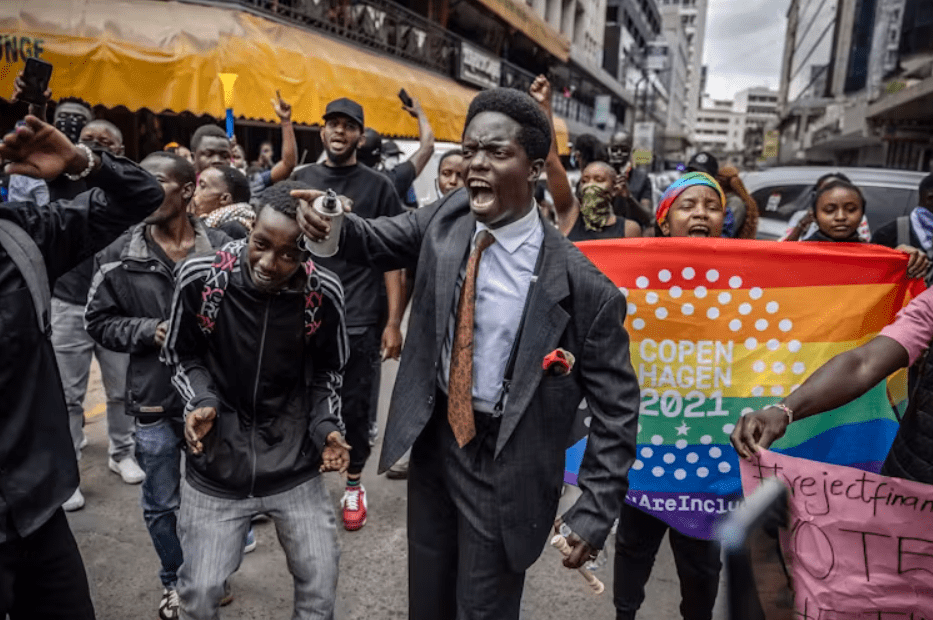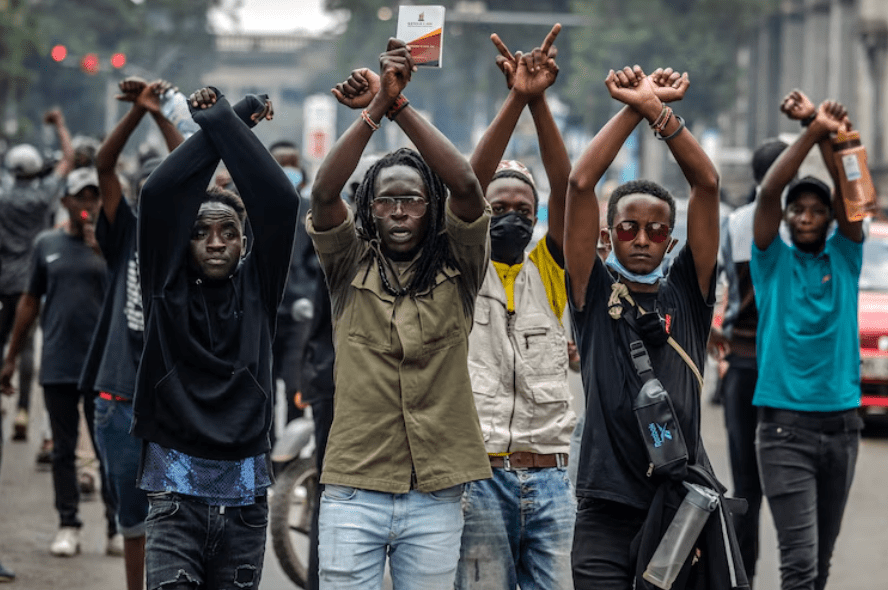Melbourne, Australia – The vibrant streets of Melbourne are set to become a stage for international solidarity as the Kenyan community gears up for a significant protest against a controversial finance bill proposed by President William Ruto’s administration.
Scheduled to take place across Melbourne this week, the rally is part of a broader wave of dissent that has swept across Kenya, driven by Gen Z activists and amplified by digital platforms.
The proposed finance bill aims to introduce new taxes and levies that would substantially increase the cost of basic goods, a move that the Kenyan government argues is necessary to raise 346.7 billion shillings ($2.7 billion USD/$4 billion AUD).

This revenue is intended to reduce the budget deficit from 5.7 per cent to 3.3 per cent of GDP. However, the bill has been met with widespread discontent, particularly among the youth, who perceive the tax hikes as an economic burden on an already struggling population.
Skitter Gitau, the organiser of the Melbourne rally, highlighted the deep connections many Kenyans in Australia maintain with their homeland.
Speaking exclusively to BACKCOVERNEWS.COM, Gitau emphasised the importance of standing in solidarity with those affected by the proposed financial measures.
“We are rejecting the finance bill because it’s overtaxing common Kenyans who don’t earn enough money for their basic needs,” Gitau said ahead of the protest.
“Our families back in Kenya are rejecting the bill because they feel like the government is betraying them. They thought everything would be cheaper but everything is more expensive.”
The frustration and anger among the Kenyan diaspora are palpable. Gitau elaborated on the real-life impacts of the proposed taxes, which include levies on essential items and services that are crucial for daily life and health.

“Many kids have dropped out of school due to lack of money to pay fees,” Gitau explained. “They’re even taxing cancer treatment, which we think should be free. That’s really bad.”
The protests in Kenya reached a tragic point last week with the deaths of two young men during the demonstrations. A 21-year-old, Evans Kiratu, was fatally injured by a tear gas canister, and a 29-year-old man was reportedly shot by police.
These incidents have intensified public outcry and demand for justice, highlighting the severe consequences of state responses to peaceful demonstrations.
The discontent is further fuelled by the high inflation rates already affecting many Kenyans. The proposed taxes threaten to exacerbate these financial burdens, making it increasingly difficult for ordinary citizens to make ends meet.
The government’s initial plan included levies on bread, car ownership, and financial and mobile services. However, after facing intense opposition, President Ruto’s administration made concessions by removing these specific levies. Nevertheless, plans to increase fuel prices and export taxes remain, intended to offset a 200-billion-shilling ($1.5 billion USD/$2.2 billion AUD) shortfall caused by the budget cuts.
Gen Z has played a pivotal role in these protests, utilising social media platforms to organise, communicate, and broadcast the events as they unfold. The rally in Melbourne symbolises more than just a protest; it represents a call for justice and economic fairness, echoing the sentiments of those who have taken to the streets in Kenya. Digital activism has demonstrated the power of social media in uniting voices across continents.
As the protestors prepare to march through Melbourne, their message is clear: the economic policies of President Ruto’s administration are seen as detrimental to the well-being of ordinary Kenyans. By standing in solidarity, the Kenyan community in Australia hopes to amplify the voices of their compatriots back home, drawing international attention to their plight and demanding a reconsideration of the proposed financial measures.

